Foundations Creating Pathways to Digital Empowerment through Workforce Development
Discover 11 Foundations with impactful programs that are building digital skills and reskilling talent, creating a diverse and ready workforce for the future.
Table of contents

Discover 11 Foundations with impactful programs that are building digital skills and reskilling talent, creating a diverse and ready workforce for the future.
Education and workforce development are at the heart of social impact, fueling progress in economies around the world. In a digital age where technology drives industries forward, the importance of accessible education has never been more pressing. It’s not just about filling jobs—it’s about building futures, particularly for those who have been left behind in the rapid transition to a tech-driven world.
The digital economy has created immense opportunities, but it has also highlighted a glaring disparity. Millions of individuals—referred to as underestimated talents—are being excluded from the global shift. These include the unemployed, underrepresented groups, those lacking formal education, and career changers. The barriers to entering the digital workforce can seem impossible for these groups. Without access to the right education and reskilling opportunities, many are denied the chance to thrive in the very economy that is reshaping the future.
The growing demand for digital skills is undeniable. A report from the World Economic Forum predicted that by 2025, over 85 million jobs may be displaced, while simultaneously, 97 million new roles will emerge—requiring skills that today’s workforce may not yet have. To bridge this gap, efforts focused on digital reskilling have become critical, particularly in ensuring marginalized communities are not left behind.
This is where Foundations play a pivotal role. By offering access to education and digital skills training, these organizations are creating pathways to empowerment. They are addressing the inequalities that persist in the workforce and providing the necessary tools for individuals to adapt, reskill, and ultimately, thrive in the digital economy.
This article will spotlight twelve Foundations leading this movement. These organizations are not just closing the digital skills gap; they are transforming lives by taking individuals from mere access to real empowerment through impactful digital reskilling programs.

Google.org is the philanthropic arm of Google, dedicated to addressing humanity's greatest challenges by combining funding, innovation, and technical expertise. Their mission is centered around empowering disadvantaged communities by providing them with opportunities to thrive in the digital age.
Impact Areas
Program Highlight: Grow with Google
Google.org’s flagship program, Grow with Google, offers IT certification online, focusing on equipping jobseekers with critical digital skills. Since 2016, this initiative has helped thousands in Europe find employment or enhance their careers. To remove barriers, Google.org funds need-based scholarships through nonprofit partners like Year Up and Merit America, specifically targeting disadvantaged communities.
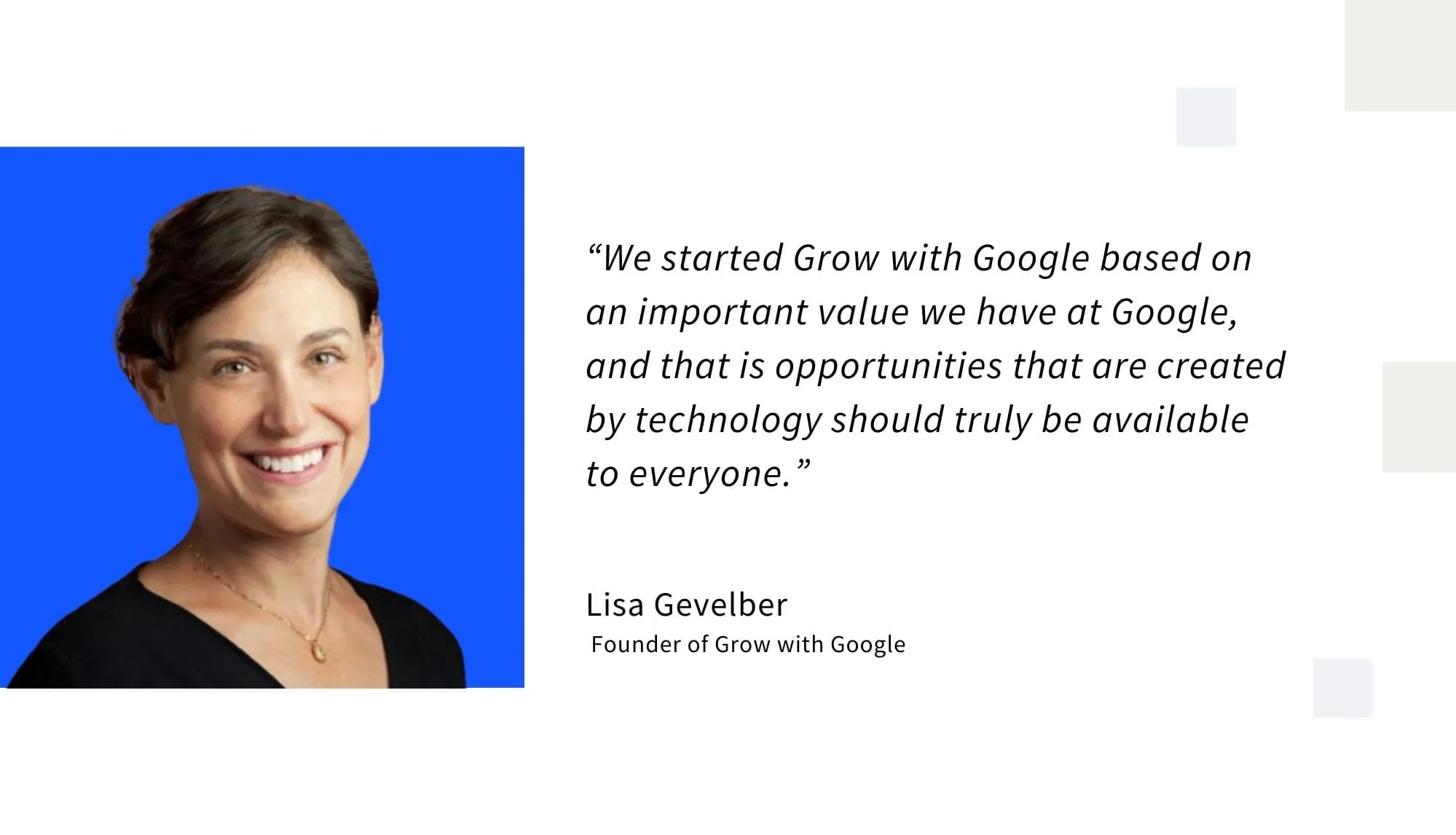
Contribution to the Digital Economy
By equipping individuals with essential digital skills and closing education gaps, Google.org enables marginalized communities to participate in the digital economy, helping build a more equitable workforce and fostering inclusive economic growth.
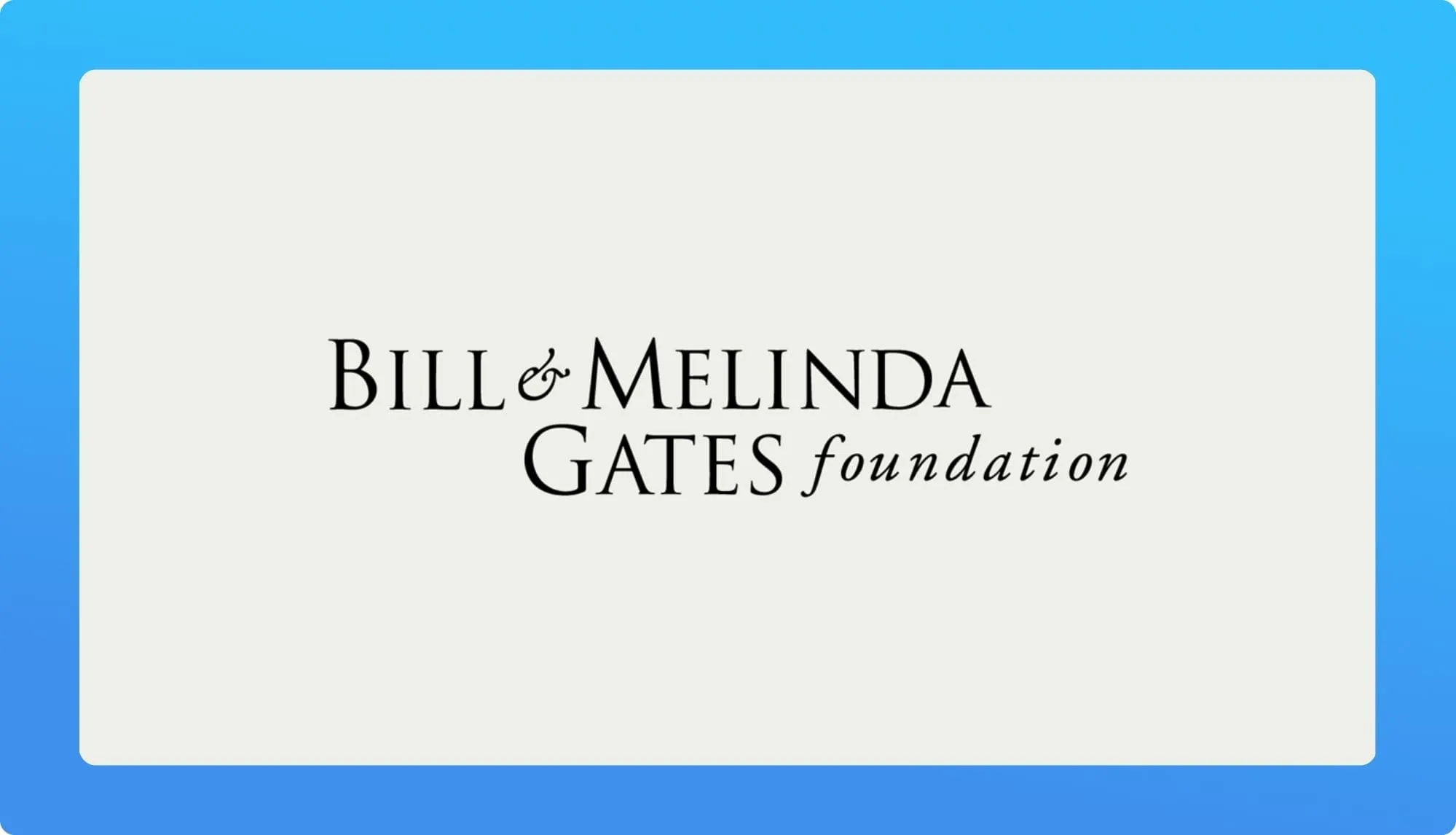
The Bill & Melinda Gates Foundation is one of the largest private Foundations globally, focused on fighting poverty, disease, and inequality. The Foundation has been instrumental in creating opportunities for all, particularly in health, education, and economic empowerment.
Impact Areas
The Foundation's work spans across multiple sectors, working with partners worldwide to tackle critical problems that share the characteristics of being deeply rooted, dynamic, and complex.
While being focused on the areas of greatest need, from poverty to health, to education, Bill & Melinda Gates Foundation seeks to drive change through specific Divisions that address the main issues they care about, such as:
Program Highlight: Women in Leadership
The Women in Leadership program focuses on empowering mid-career women to take on leadership roles, with a strategic emphasis on individual empowerment, organizational change, and societal impact.
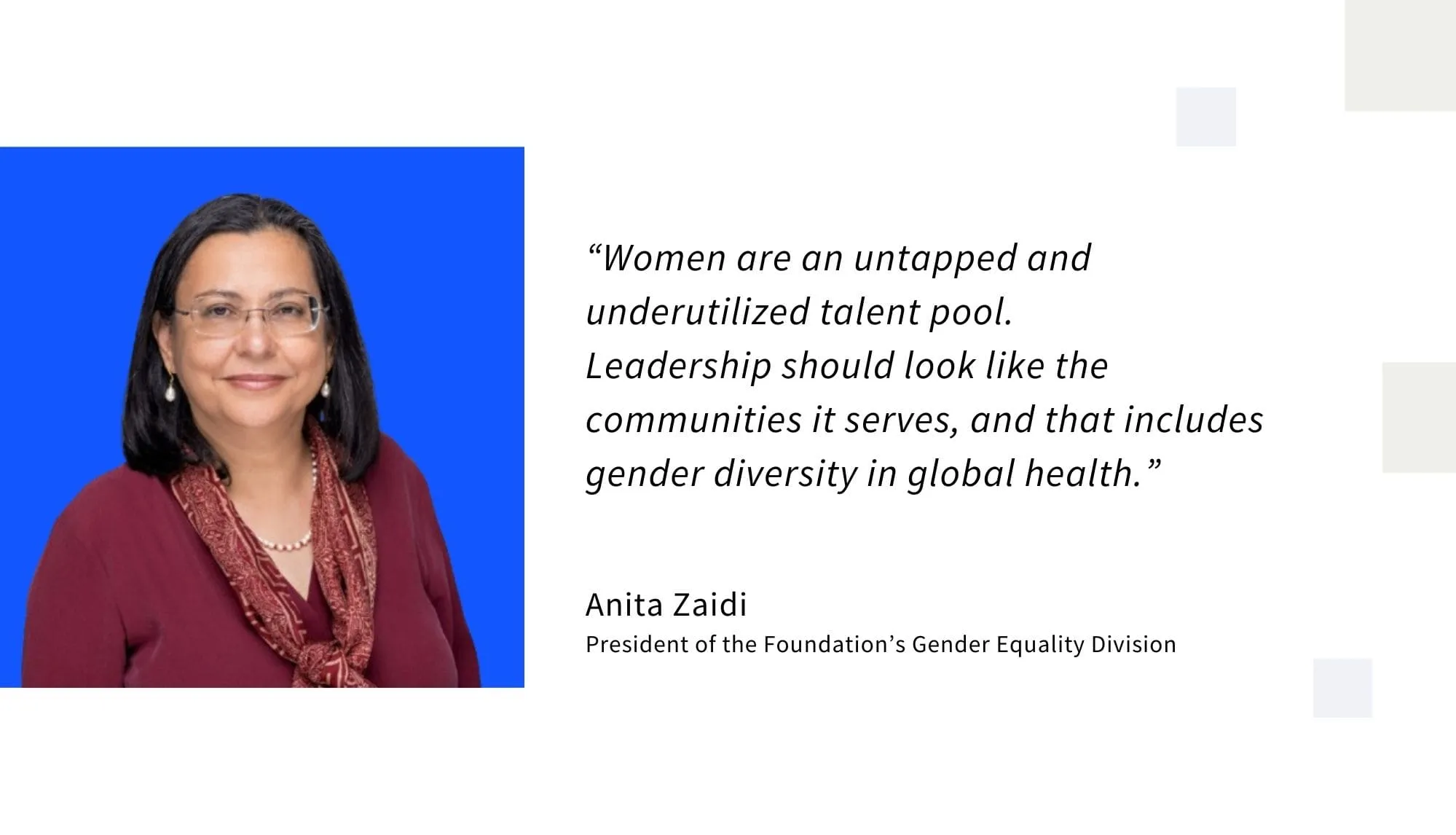
This initiative recognizes the broader social and economic benefits of having more women in decision-making roles, contributing to progress in health, justice, and prosperity.
Contribution to the Digital Economy
By promoting gender equality and women’s leadership, the Bill & Melinda Gates Foundation is creating more inclusive economies where diverse voices can lead to better decision-making and equitable digital transformation.
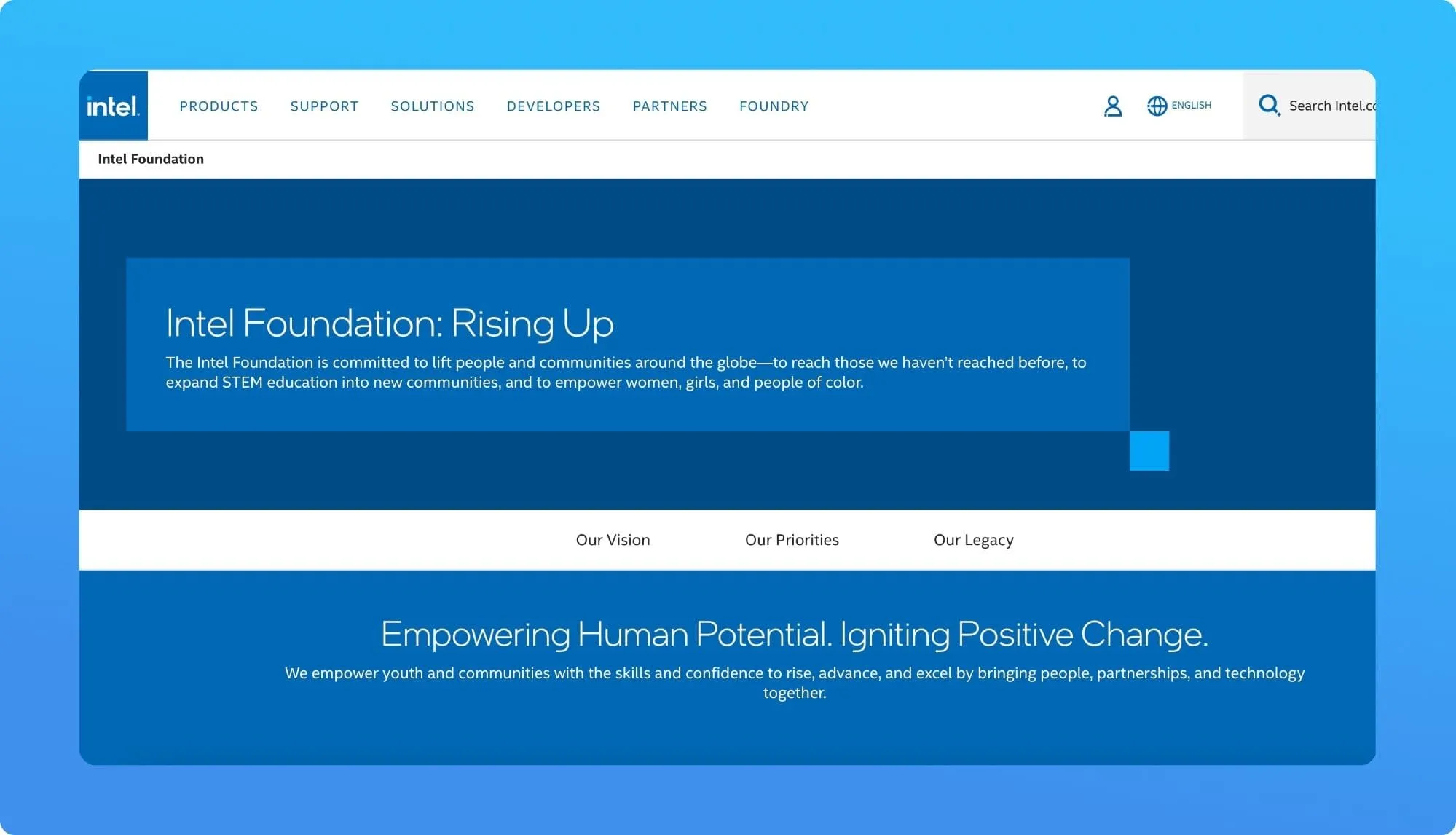
The Intel Foundation aims to uplift underserved populations by expanding access to STEM education and empowering individuals with the skills needed to thrive in the digital age. Their mission is to empower human potential and ignite positive change.
Impact Areas
Program Highlight: Million Girls Moonshot
The Million Girls Moonshot initiative is a movement designed to inspire the next generation of innovators by engaging more girls in STEM learning opportunities. This nationwide program reaches millions of youth through afterschool and summer programs, with a focus on underserved and underrepresented communities.
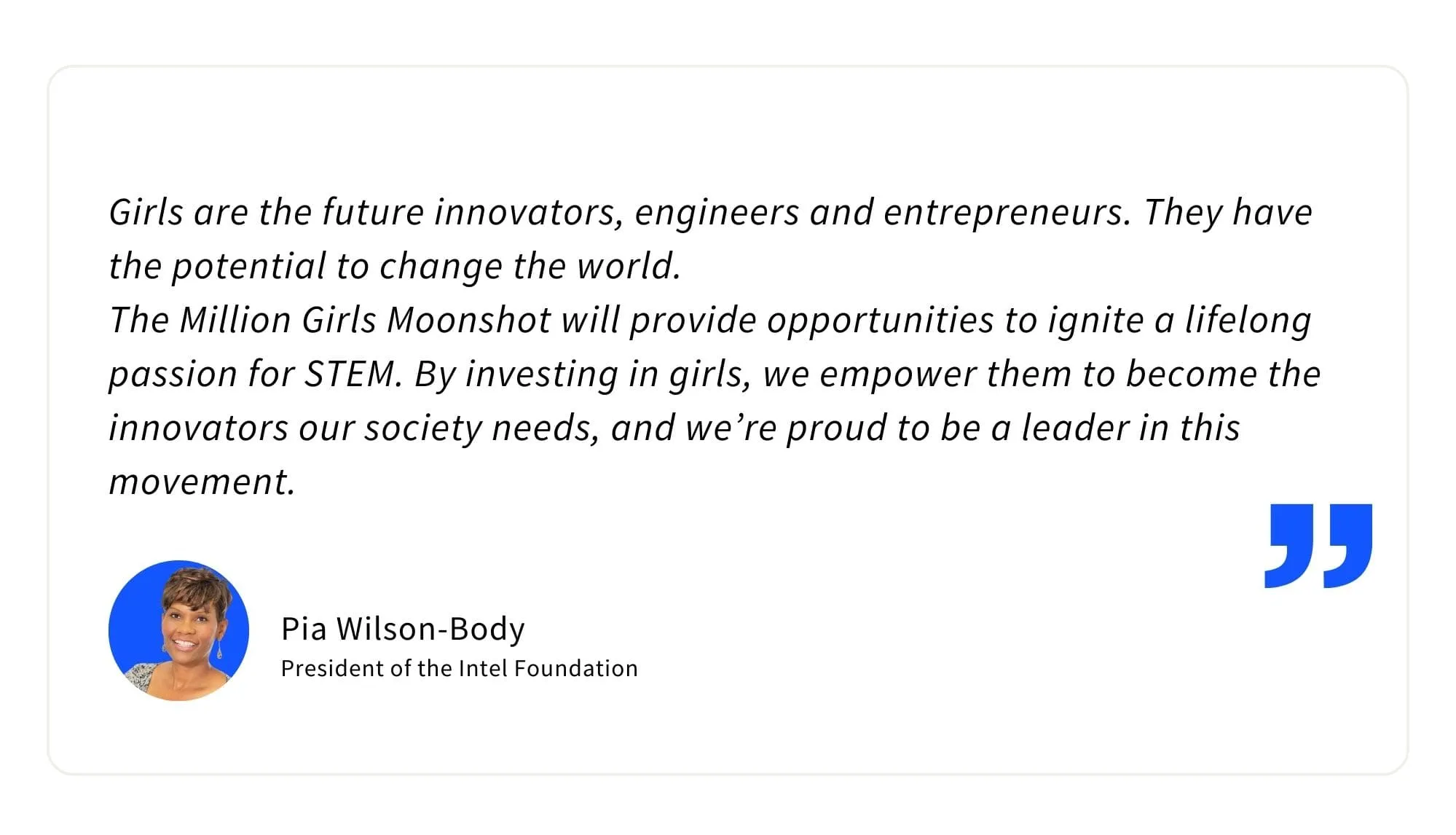
Contribution to the Digital Economy
By fostering STEM education for girls and underserved youth, the Intel Foundation is building a pipeline of diverse talent essential for the future digital workforce, promoting equity and innovation in the tech industry.
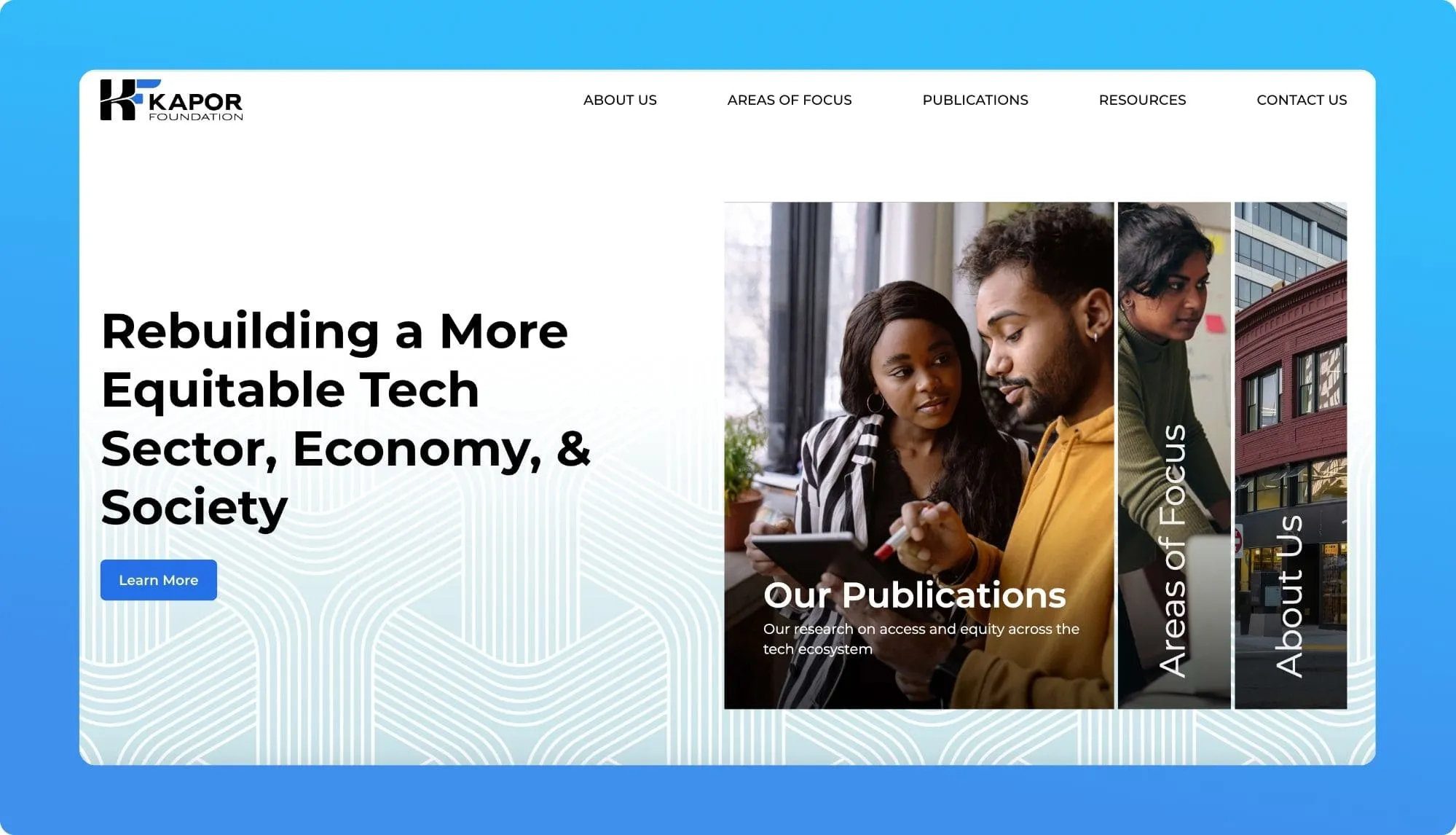
The Kapor Foundation is dedicated to creating a more equitable tech sector, economy, and society. Their work centers around racial justice and expanding opportunities for Black, Indigenous, and Latinx communities in the tech industry.
Impact Areas
Program Highlight: Inclusive Pathways to Tech
The Inclusive Pathways to Tech initiative offers alternative pathways into the tech industry, particularly through partnerships like the “Airbnb Connect Software Engineering Apprenticeship”, which provides entry-level opportunities for individuals from nontraditional technical backgrounds.
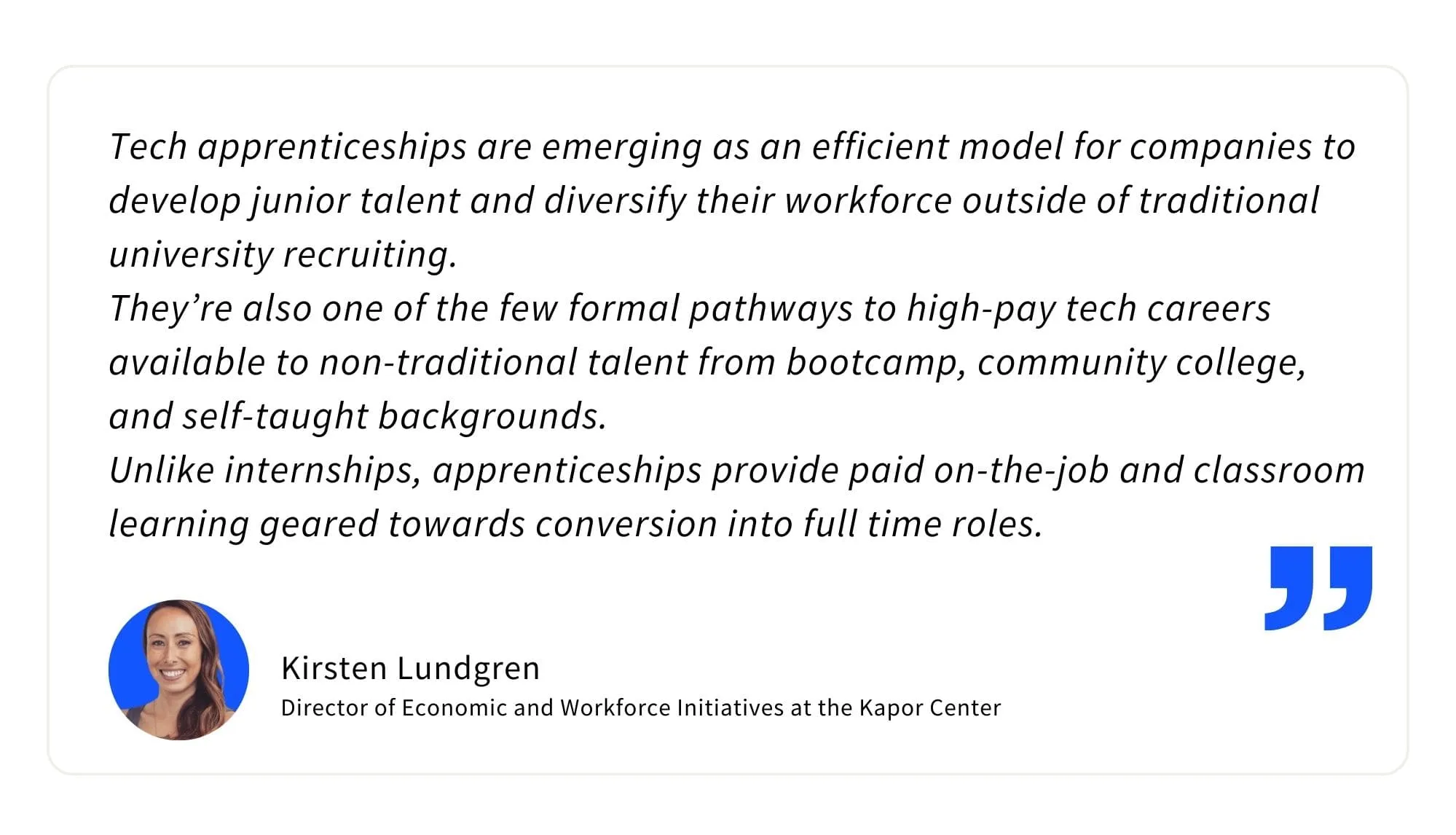
Contribution to the Digital Economy
The Kapor Foundation is transforming the tech ecosystem by creating more inclusive pathways into tech jobs and investing in programs that address racial inequality. Their efforts are crucial in fostering diversity and innovation within the digital economy.
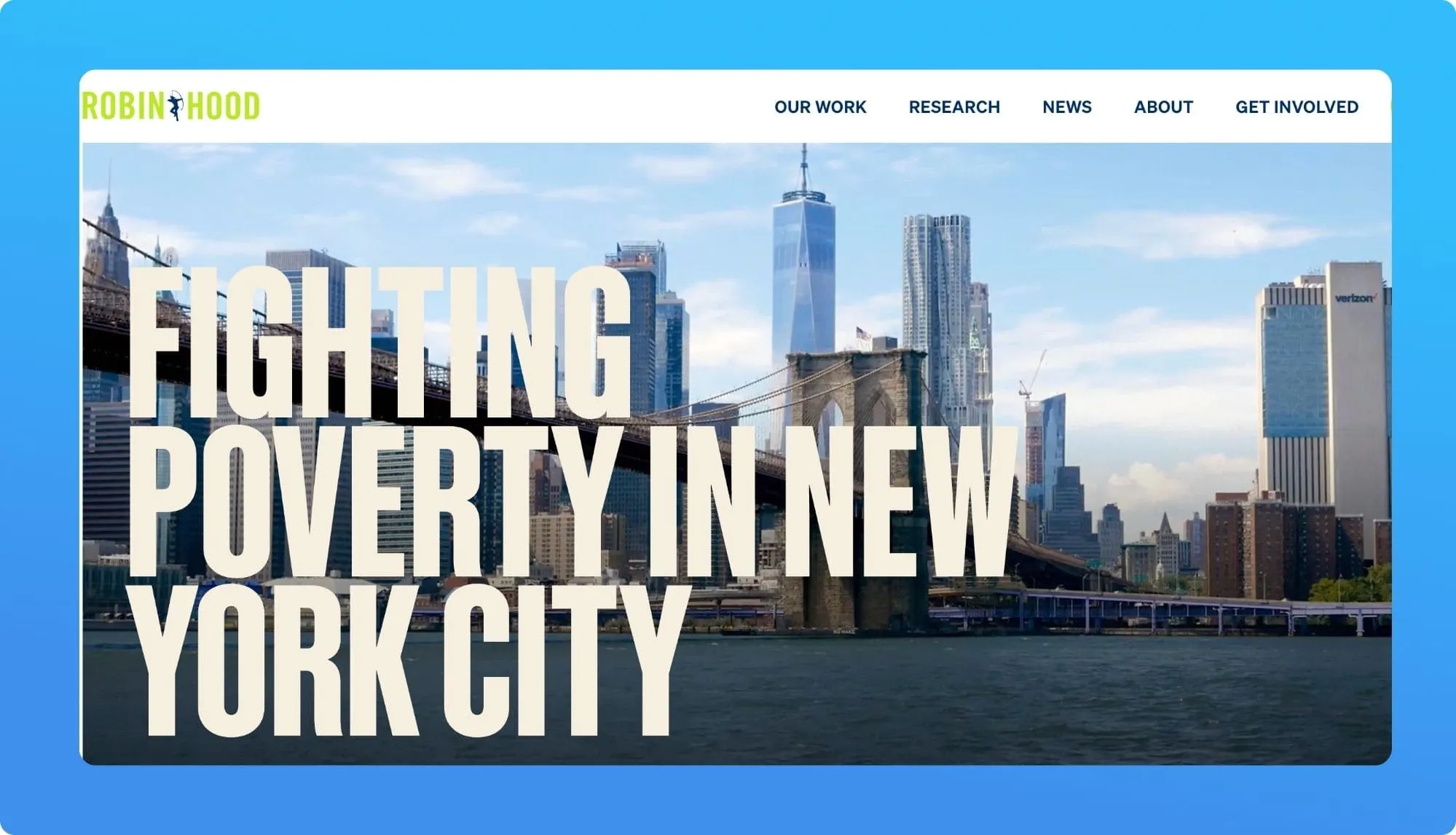
The Robin Hood Foundation is a pivotal organization dedicated to fighting poverty in New York City. For over 35 years, Robin Hood has tackled the root causes of poverty, collaborating with high-impact community organizations and government entities to elevate struggling New Yorkers.
Impact Areas
Robin Hood focuses on workforce development, education, housing, and healthcare, all critical to fostering economic mobility. Their initiatives prioritize job creation and access to well-paying jobs, especially for historically marginalized communities.
Program & Special Initiatives
One key initiative is their effort to expand internships and apprenticeships, providing young adults with “earn while you learn” opportunities in sectors that promise upward mobility. This approach enables low-income New Yorkers to gain practical, in-demand skills while earning a living, paving a path to long-term career success.
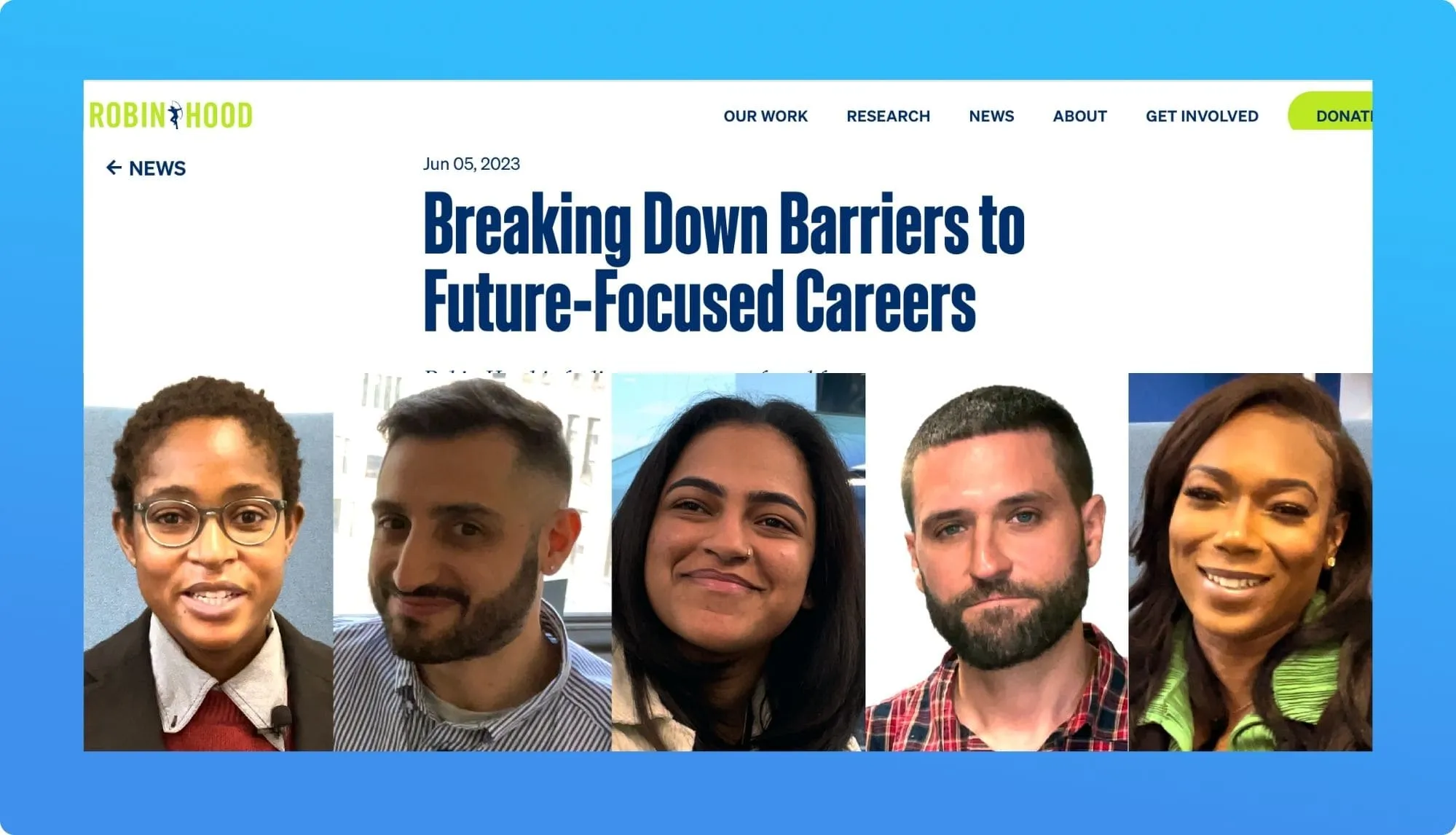
Contribution to the Digital Economy
Through these programs, Robin Hood has facilitated substantial opportunities for young adults, providing critical support that prepares them for sustainable careers in NYC’s evolving economic landscape.
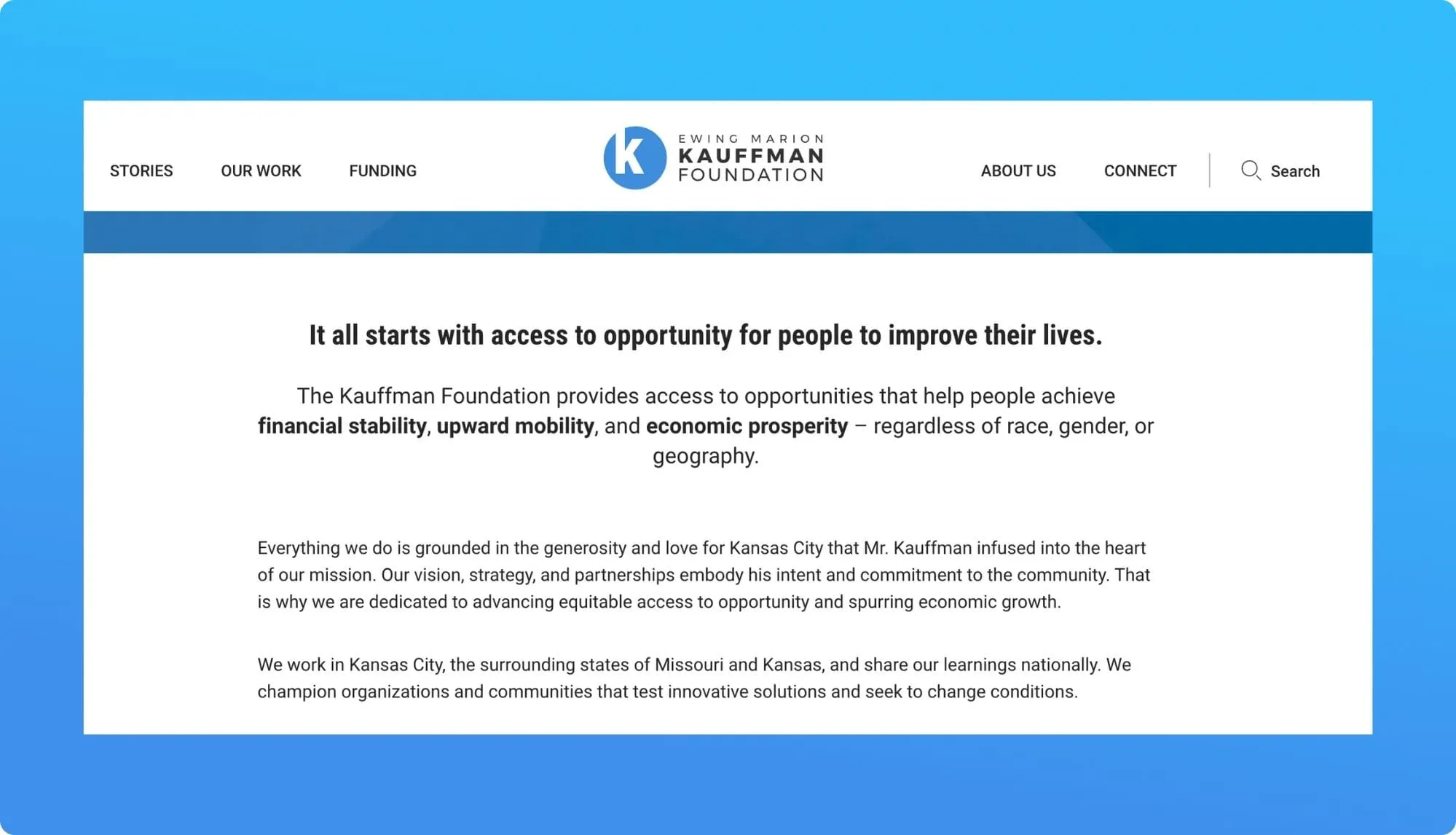
The Kauffman Foundation is committed to advancing equitable access to economic opportunities through education, workforce development, and entrepreneurship. Rooted in Kansas City, the Foundation’s mission reflects the vision of its founder, Ewing Marion Kauffman, to empower individuals to achieve economic mobility and prosperity.
Impact Areas
Kauffman’s work spans entrepreneurship support, college access, and workforce training, with a particular focus on racial equity, diversity, and inclusion. By uplifting historically under-resourced communities, they aim to create sustainable pathways to financial stability.
"When people have access to training, support, and the opportunity to achieve and progress on a career path, they can attain an equitable living wage, setting generations of people on the path to prosperity."
Program Highlight
Kauffman’s Real World Learning (RWL) program is a standout initiative, connecting high school students with career experiences and credentials. Through internships, college credits, and industry certifications, RWL gives students hands-on exposure to future careers while still in school, thus helping them transition seamlessly into the workforce.
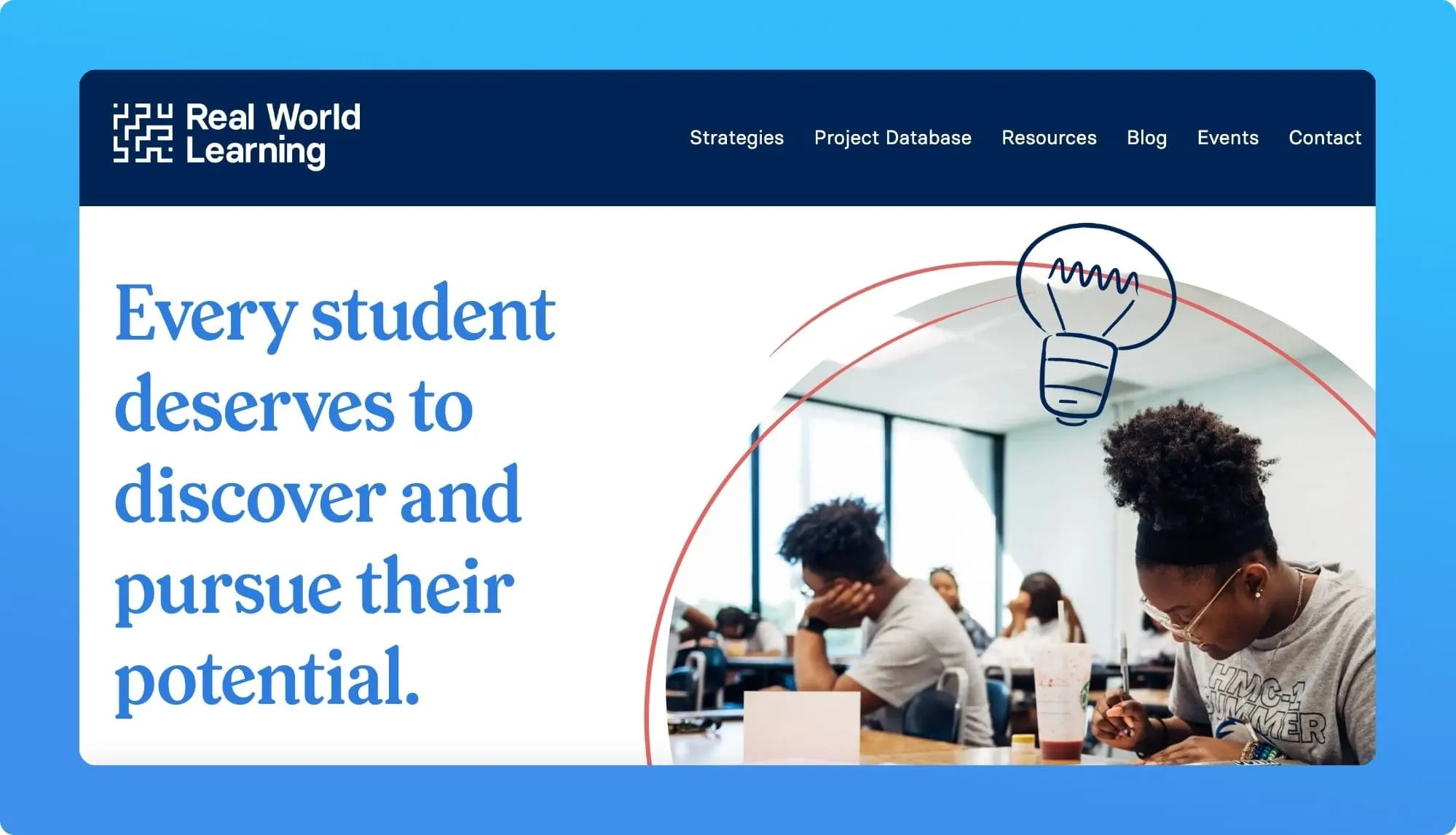
Contribution to the Digital Economy
With 30+ school districts participating, RWL has become a national model for blending education with workforce preparation, fostering a stronger talent pipeline that addresses local and national employment needs.
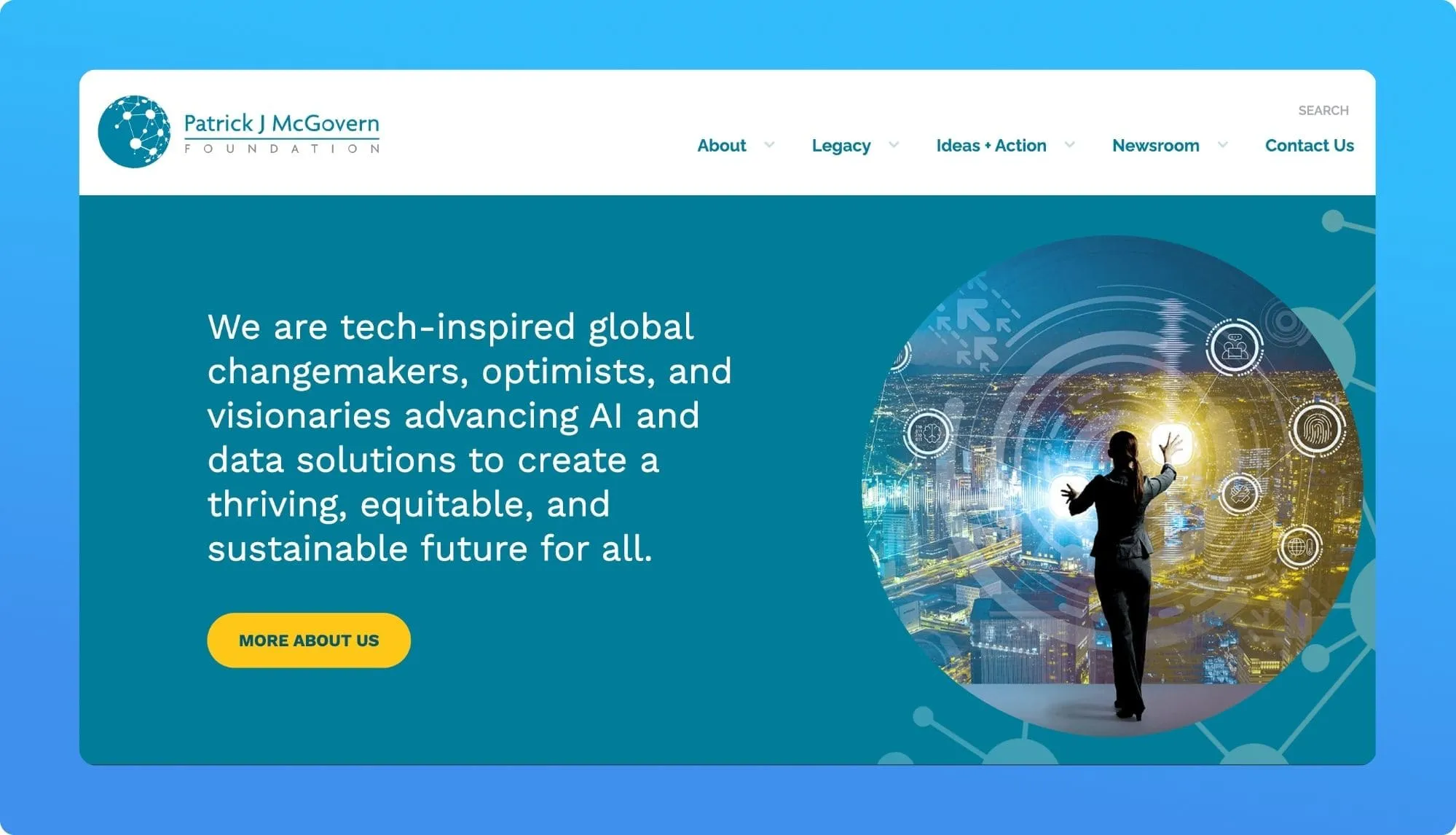
The Patrick J. McGovern Foundation is a forward-thinking philanthropic organization leveraging AI and data science to address humanity's most pressing issues, including climate change, digital equity, and health disparities. The Foundation fosters innovation while prioritizing ethical development and accessibility in AI applications.
Impact Areas
With a focus on inclusion, diversity, equity, and accessibility (IDEA), the McGovern Foundation aims to democratize AI and data to ensure that all communities benefit from technological advancements. Their initiatives support digital health, climate action, and future education for tech professionals, particularly in underrepresented communities.
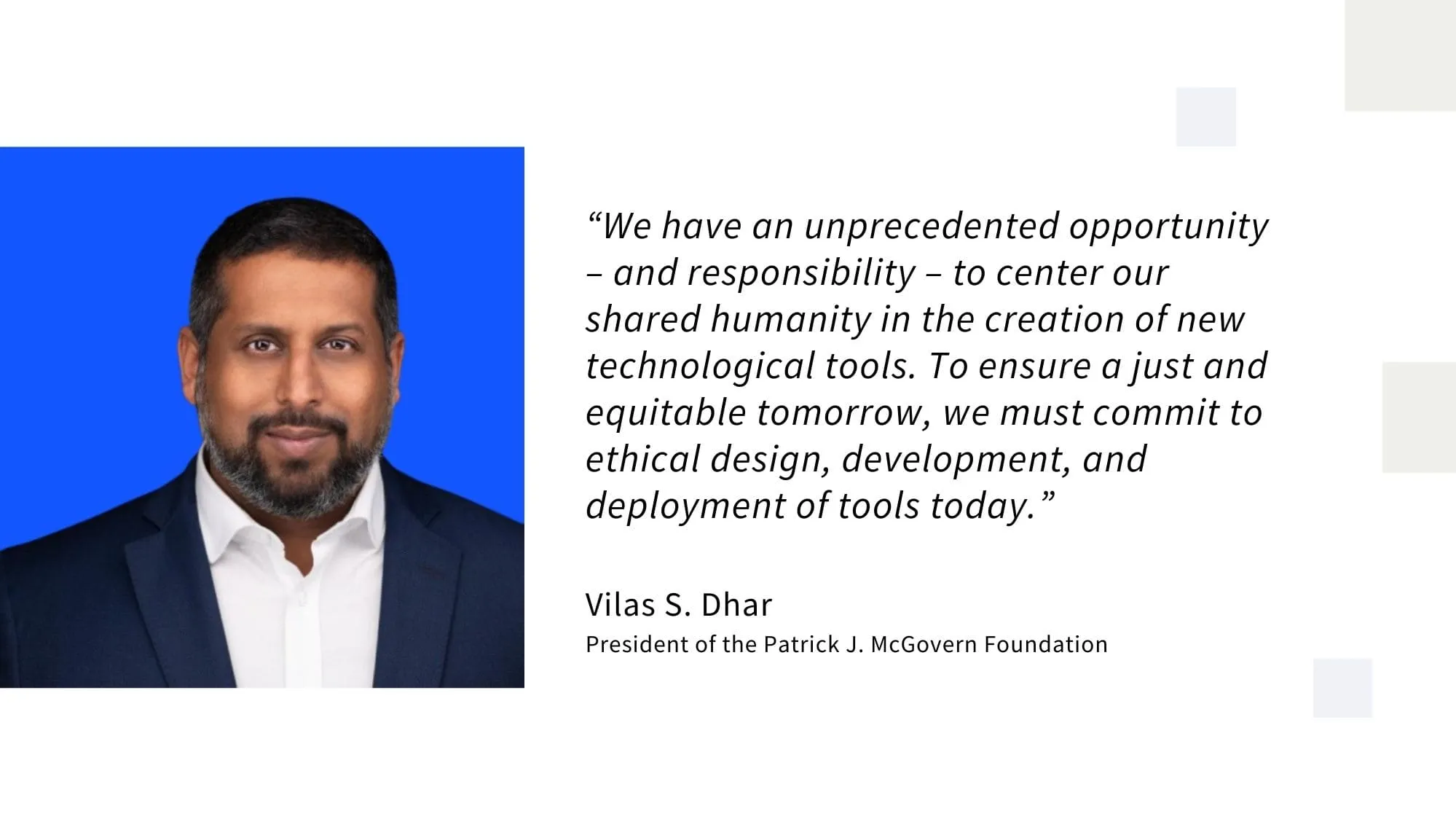
Program Highlight
The Foundation supports various organizations through grants, including Generation - You Employed Inc, which integrates AI into its tech career training programs, and Technovation, which empowers underserved girls around the world with tech skills through AI and entrepreneurship programs. These partnerships help create more accessible pathways for underrepresented communities to enter high-demand tech fields.
Contribution to the Digital Economy
By supporting projects that focus on AI-enhanced curriculum and inclusive entrepreneurship, the McGovern Foundation is fostering a tech-savvy, diverse workforce prepared to address 21st-century challenges.
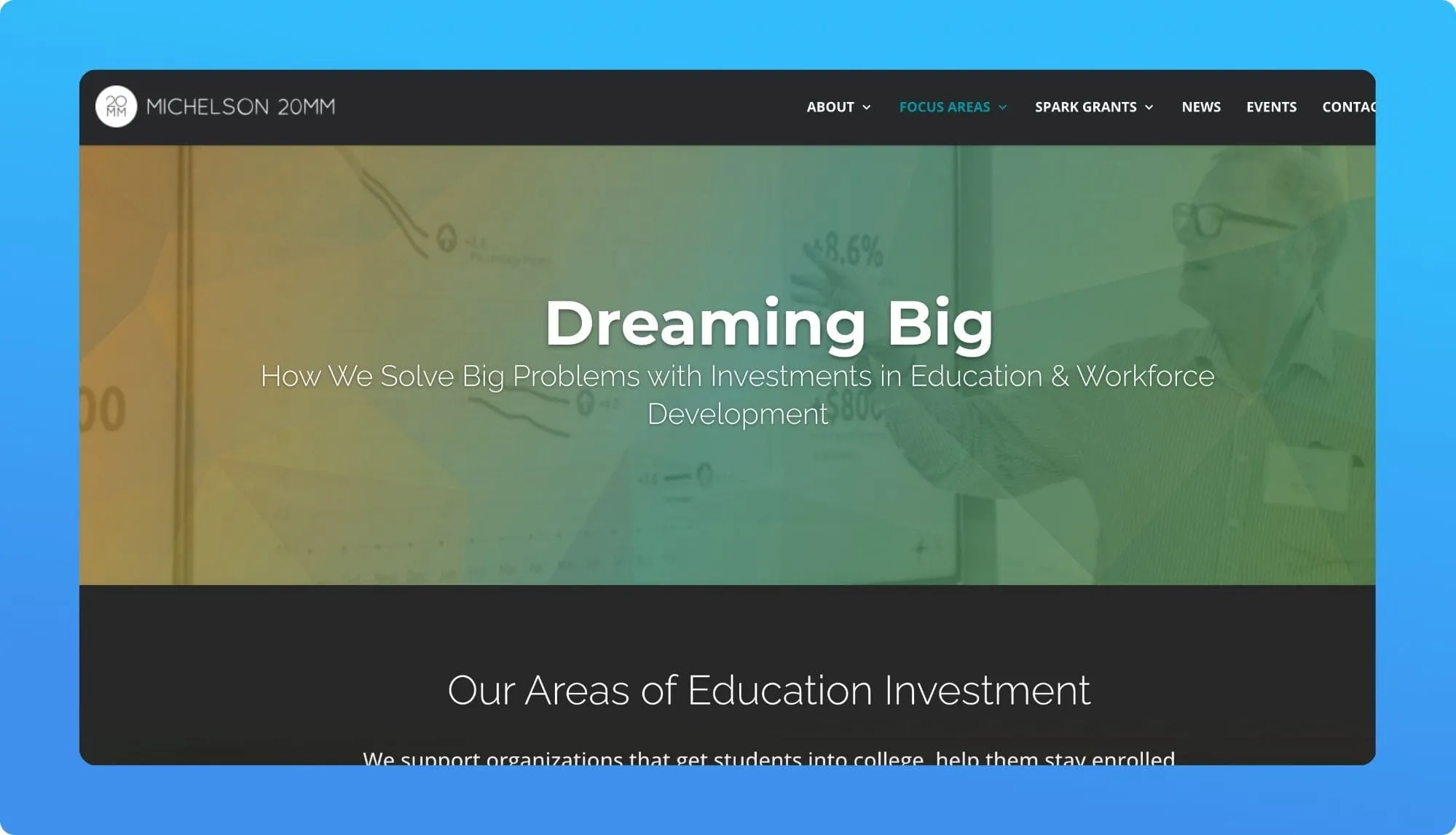
Founded by Dr. Gary Michelson, Michelson 20MM aims to improve access to higher education, foster innovation, and drive workforce development. The foundation is committed to equity, focusing on underserved and underrepresented communities through educational and workforce initiatives.
Impact Areas
Michelson 20MM works across education, intellectual property, digital equity, and workforce development, ensuring students from disadvantaged backgrounds have access to higher education, tech careers, and entrepreneurial opportunities. Their programs aim to reduce the cost of education and remove barriers for non-traditional students.
Program Highlight
The Foundation’s collaboration with ReUp Education focuses on re-enrolling adult learners who previously dropped out of college. ReUp helps adult learners complete their degrees, thereby enhancing their career prospects and addressing the growing demand for tech-skilled workers.
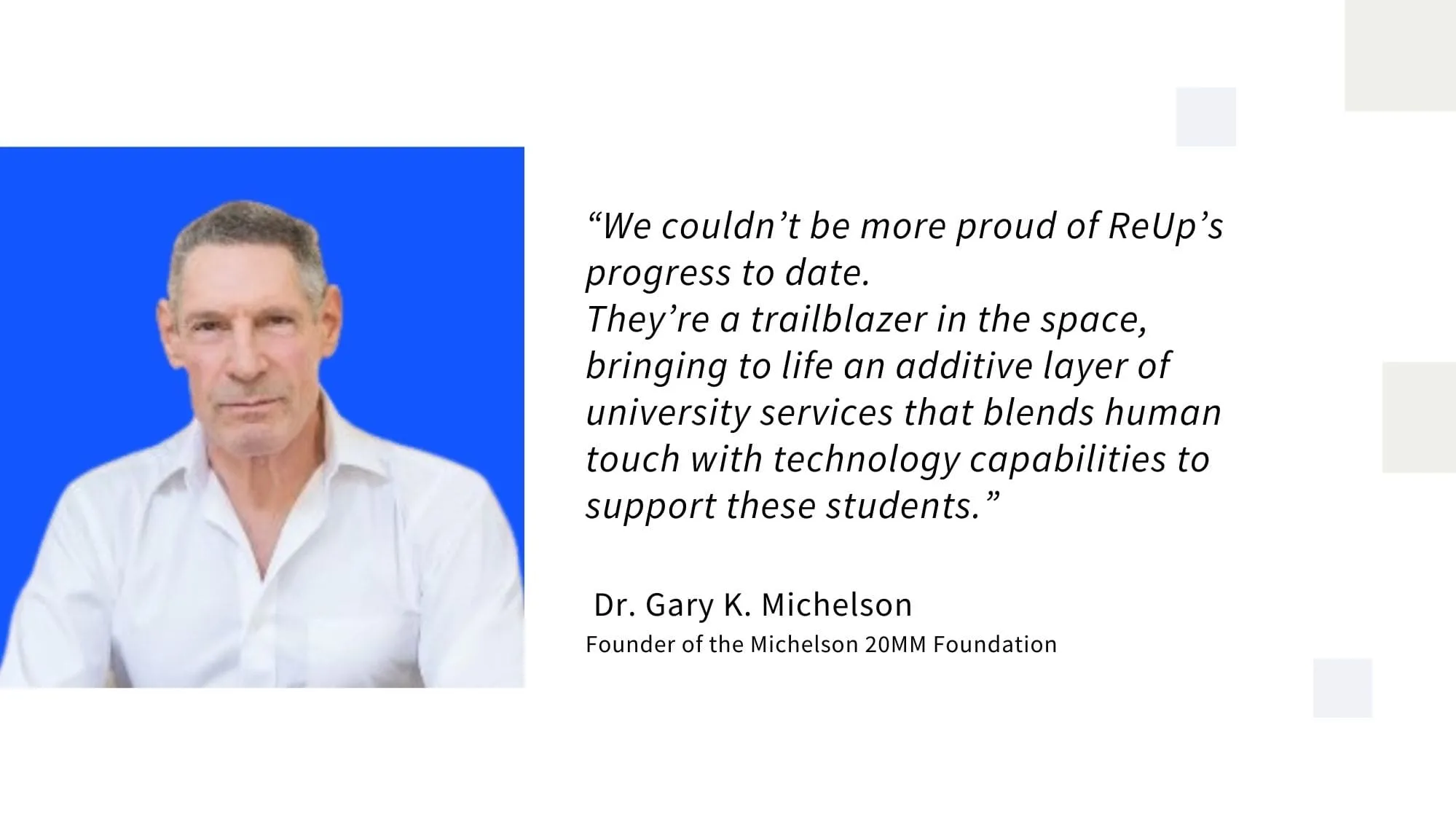
Contribution to the Digital Economy
By bridging the gap between education and workforce needs, Michelson 20MM helps working adults transition into higher-paying jobs, contributing to a more robust and inclusive workforce.

The Michael & Susan Dell Foundation tackles poverty through initiatives in education, health, and family economic stability. The Foundation works in the U.S., India, and South Africa, helping children and families overcome barriers that limit their potential.
“Potential is equally distributed; opportunity is not. A complex set of health, educational, and financial circumstances can limit opportunity for children and families living in urban poverty. Families struggling to make ends meet often cannot think beyond the next day, let alone plan for the future. To achieve the future they want, they first need a stable foundation.”
- Message from the Founders Michael & Susan Dell
Impact Areas
Focusing on education, the Foundation provides access to quality schools, career training, and financial services. Their workforce programs emphasize job creation and career readiness for young adults, particularly in underserved regions such as India and South Africa.
Program Highlight
In Greater Austin, the Foundation supports over 500,000 families each year. By improving access to education, job training, and health care, the initiative helps residents pursue upward mobility. The program focuses on academic success, quality employment, and transforming local healthcare systems.
Contribution to the Digital Economy
This initiative has empowered thousands of families by providing them with the skills and resources needed to build stable futures, fostering economic resilience, and addressing local challenges in the job market.
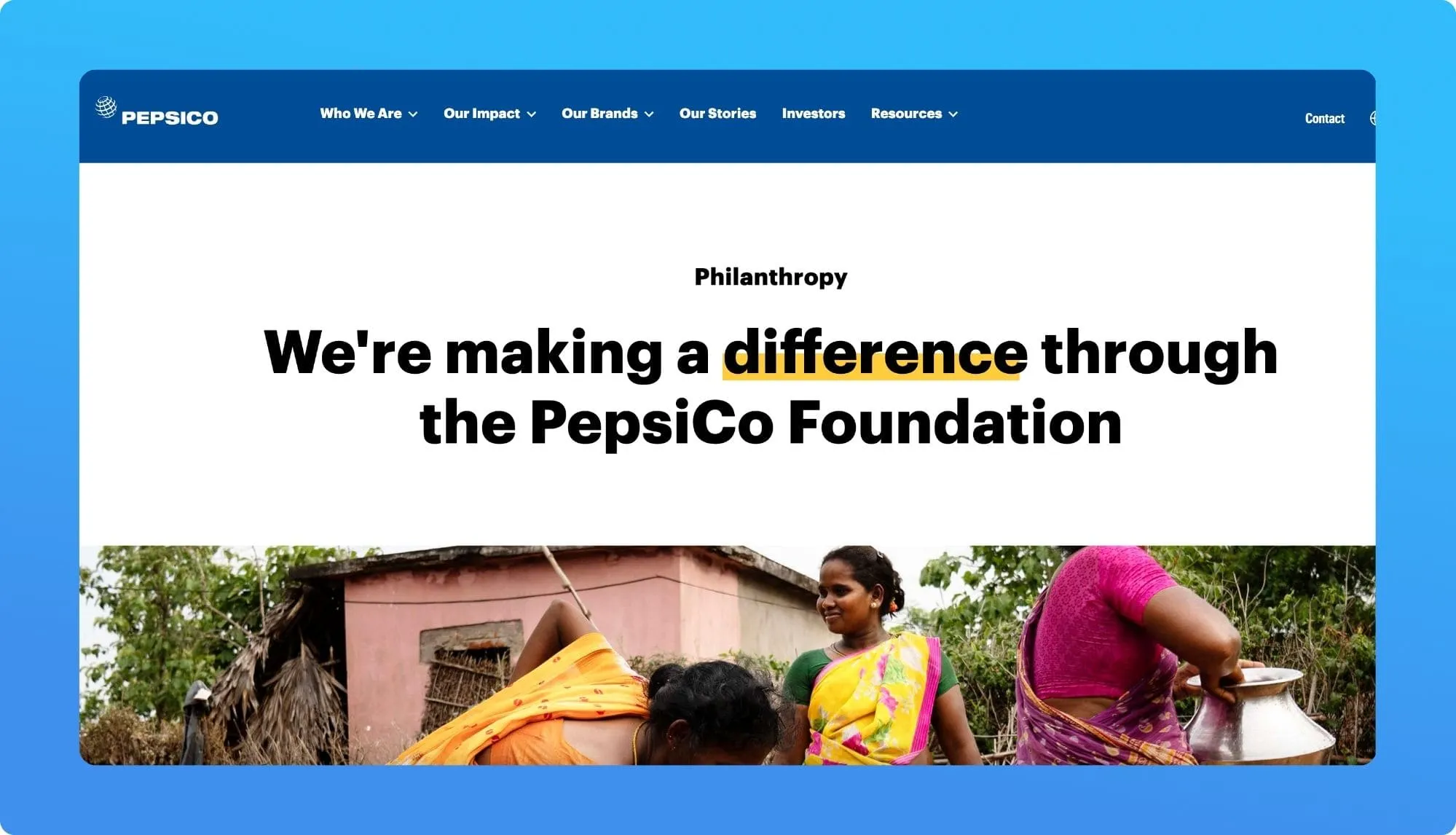
The PepsiCo Foundation is committed to fostering social and economic growth in underserved communities by addressing key challenges such as access to nutritious food, clean water, and economic opportunity. Its mission focuses on creating sustainable solutions to these issues, aiming for a more equitable world where every person can prosper.
Impact Areas
The Foundation prioritizes economic opportunity, particularly for marginalized groups such as women and small business owners. It invests in education, mentoring, and training programs to close the income gap and alleviate historical barriers, helping underserved populations access equitable education and capital.
Program Highlight
The Community College Program is a $40 million initiative partnering with 20 U.S. community colleges to provide scholarships, mentoring, and career guidance. This workforce development initiative offers financial support while addressing external barriers students face, helping them transition into stable, well-paying careers.
Internationally, the International Youth Foundation's Passport to Success® Traveler Program teaches life and digital skills to young women. With a $2.5 million investment, this online training course equips women with the tools needed to thrive in the modern workforce, further driving the Foundation’s mission to create sustainable economic opportunities.
Introducing the Passport to Success Traveler
Contribution to the Digital Economy
Through its community college partnerships, PepsiCo Foundation has empowered thousands of students by providing a holistic support system that bridges educational and socioeconomic gaps. The She Works Wonders initiative in Egypt, focusing on technology and supply chain sectors, exemplifies their international commitment to creating a pipeline of skilled women entering traditionally male-dominated fields.
"The PepsiCo Foundation has awarded 2,925 scholarships from 2021 through 2023 and aims to reach 4,125 scholarships awarded by 2025, helping students in underserved communities find the pathway to prosperity."
- PepsiCo Foundation 2023 Global Impact Report
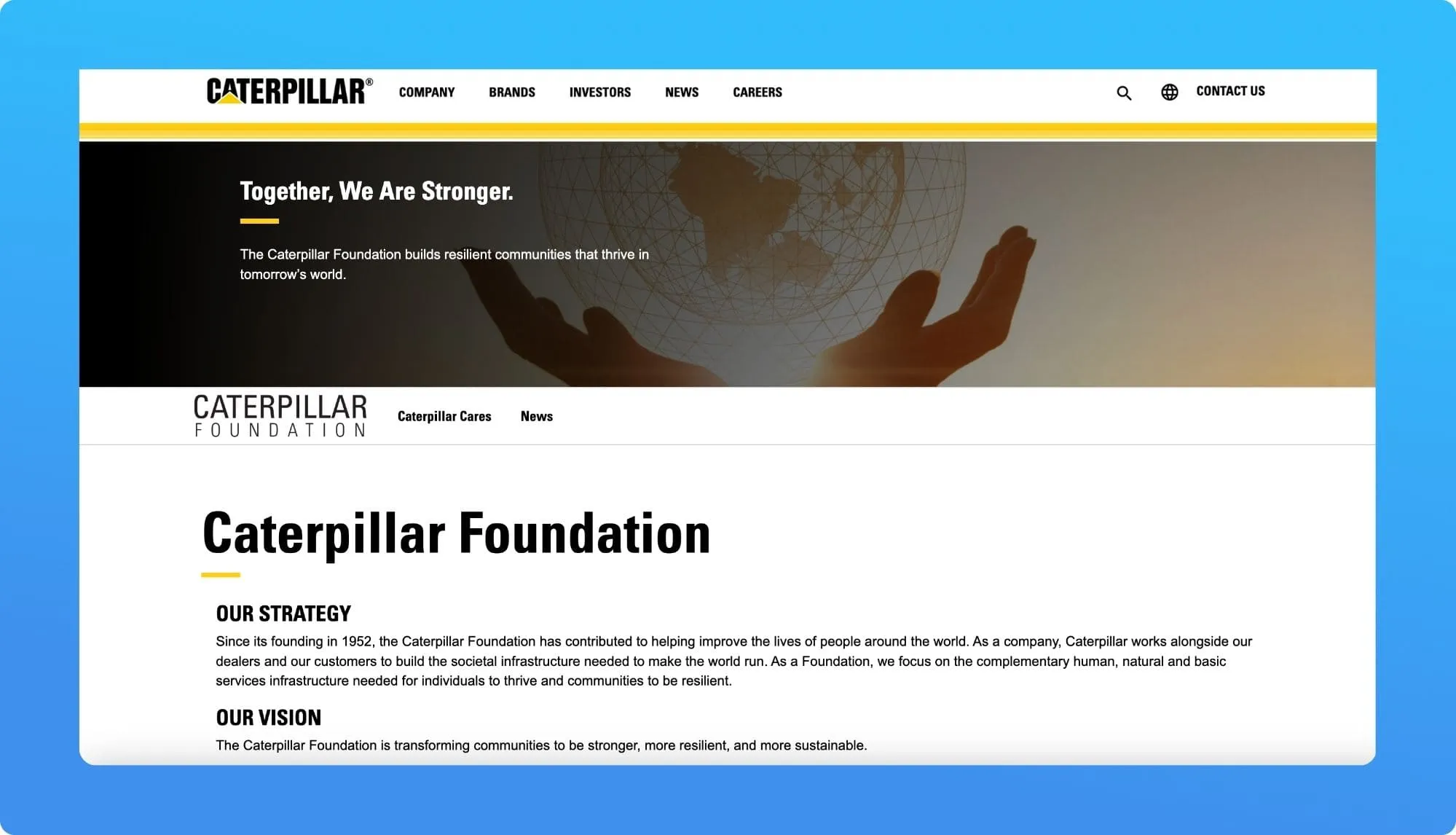
Founded in 1952, the Caterpillar Foundation is dedicated to building sustainable, resilient communities by investing in human, natural, and basic service infrastructures. As the philanthropic arm of Caterpillar Inc., the Foundation complements the company’s focus on societal infrastructure by enabling individuals to thrive in today’s modern economy.
Impact Areas
The Caterpillar Foundation’s work centers on workforce readiness and STEM education. It recognizes the importance of equipping underrepresented populations, such as women and minorities, with the skills and technical expertise needed to succeed in 21st-century jobs.
Equipping young people with the skills that they need to succeed at the workplace in order to find success is a major focus of the Caterpillar Foundation
Program Highlight
The Foundation’s workforce readiness efforts aim to help underserved communities, especially women and minorities, gain essential job skills through technical education and basic computer training. By targeting local labor markets and partnering with well-equipped educators, the Caterpillar Foundation offers hands-on learning experiences that directly align with market demands. Their STEM education programs focus on reducing education gaps that disproportionately affect low- and middle-income communities.

Contribution to the Digital Economy
Through its workforce readiness initiatives, the Caterpillar Foundation has significantly improved access to technical training for marginalized groups, particularly in industries like construction and engineering. By prioritizing real-world experience and localized needs, the Foundation has helped increase the percentage of women and minorities entering skilled trades.
The Foundations spotlighted in this article are doing more than just filling skills gaps; they are transforming the fabric of society by creating a more inclusive digital economy. Through targeted education and workforce development initiatives, they are not only preparing individuals for the jobs of tomorrow but also empowering entire communities, breaking down barriers for the underserved, and fostering long-term economic resilience.
From digital skills training and STEM education to reskilling programs that unlock high-paying tech careers, these organizations are shaping a future where marginalized groups can thrive in the rapidly evolving digital landscape.
This work is critical. The programs these Foundations support are not merely pathways to employment—they are vehicles for social change, economic mobility, and community empowerment. The ripple effects are profound, helping to close opportunity gaps, drive innovation, and create a more equitable world.
Now is the time to act. Whether you're in a position to to form partnerships, offer corporate philanthropy, or advocate for policy change, supporting these initiatives is a direct way to contribute to a more just and inclusive future. By aligning with organizations that prioritize education and workforce development, you become part of a movement that is not only preparing people for jobs—but also building the foundations for a fairer, more prosperous digital economy for all.
If you’re interested in collaborating or learning how to accelerate digital reskilling in underserved communities, reach out to NoCode Institute for potential partnership opportunities. Together, we can ensure that the digital economy leaves no one behind.
Looking to re-invent yourself and turn your talent into a career? Stay up to date with the latest.